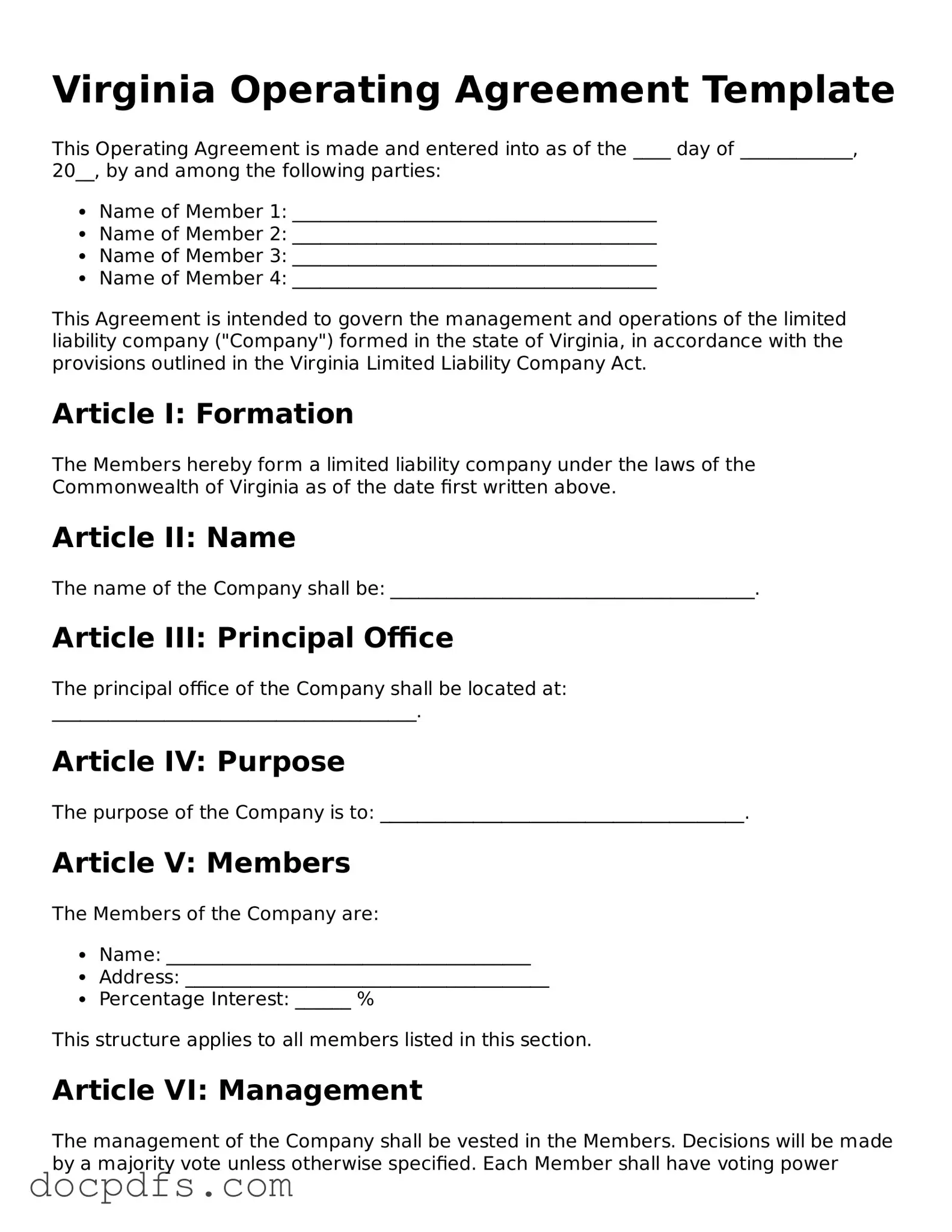What is a Virginia Operating Agreement?
A Virginia Operating Agreement is a legal document that outlines the management structure and operating procedures of a limited liability company (LLC) in Virginia. It serves as an internal guide for members, detailing their rights, responsibilities, and how the company will operate. While it is not mandatory to file this agreement with the state, having one in place is highly recommended to prevent misunderstandings among members.
Why do I need an Operating Agreement for my LLC?
An Operating Agreement is essential for several reasons:
-
Clarifies Roles:
It clearly defines the roles and responsibilities of each member, which helps avoid conflicts.
-
Protects Limited Liability:
Having an Operating Agreement can reinforce the limited liability status of your LLC, protecting your personal assets from business debts.
-
Guides Decision-Making:
It provides a framework for how decisions will be made, including voting rights and procedures.
-
Facilitates Business Operations:
The agreement outlines how profits and losses will be distributed, how new members can join, and what happens if a member leaves.
Is an Operating Agreement required in Virginia?
No, Virginia does not legally require LLCs to have an Operating Agreement. However, it is strongly advised to create one. Without it, your LLC will be governed by the default rules set by Virginia law, which may not align with your intentions or the needs of your business.
What should be included in a Virginia Operating Agreement?
A comprehensive Operating Agreement should include the following key elements:
-
Company Name and Purpose:
Clearly state the name of the LLC and its business purpose.
-
Member Information:
List all members and their respective ownership percentages.
-
Management Structure:
Specify whether the LLC will be member-managed or manager-managed.
-
Voting Rights:
Outline how voting will take place and what constitutes a quorum.
-
Profit and Loss Distribution:
Describe how profits and losses will be allocated among members.
-
Amendment Procedures:
Detail how the Operating Agreement can be amended in the future.
Can I change my Operating Agreement after it’s been created?
Yes, you can modify your Operating Agreement at any time. It’s important to have a clear process for amendments outlined within the agreement itself. Typically, changes require a majority or unanimous vote from the members, depending on what you’ve established in the original document. Keeping your Operating Agreement up to date ensures that it reflects the current operations and agreements of your LLC.
Where can I find a template for a Virginia Operating Agreement?
Templates for Virginia Operating Agreements can be found online through various legal websites, or you can consult with an attorney who specializes in business law. Using a template can save time, but it’s crucial to ensure that the document fits your specific business needs and complies with Virginia laws. Customizing the agreement to reflect the unique aspects of your LLC is always a good idea.

